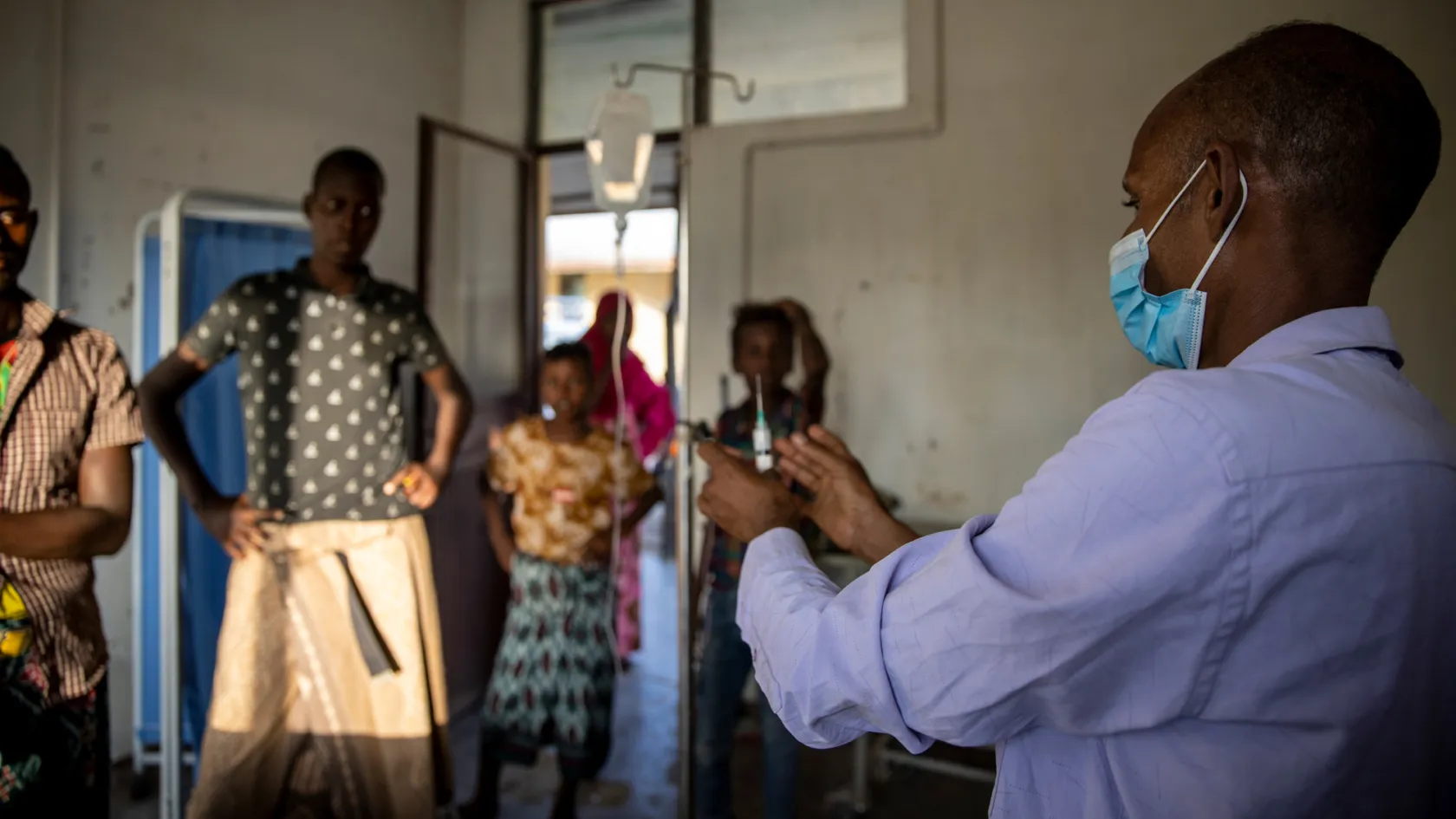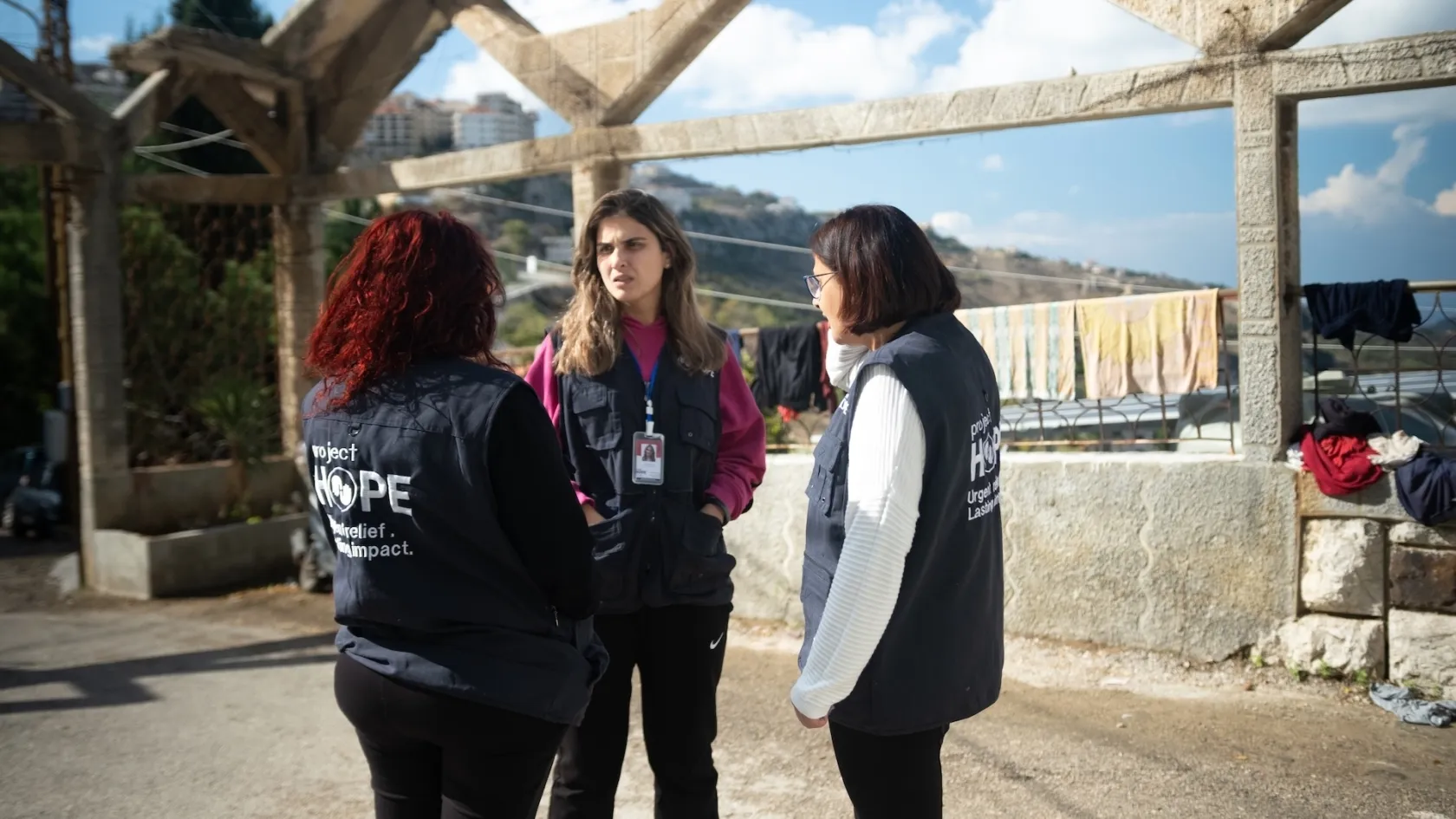How Young People Are Changing the Narrative on Diabetes
It’s a growing global epidemic and one of the world’s leading causes of death. In Mexico, young people are showing that a future without diabetes is possible.

For 17-year-old Irene Jocelyn Ramirez, who lives in the suburbs of Mexico City, the impact of diabetes has been personal.
Noncommunicable diseases (NCDs) like diabetes are a major public health crisis in Mexico, which has one of the highest rates of diabetes in the world. Both of Irene’s grandparents have lived with the challenges of diabetes and other noncommunicable diseases, and she’s been alongside each of them as they managed their respective health battles. Her grandmother, who was one of Irene’s biggest inspirations, recently passed away.
“I have been through many illnesses with my grandparents,” she says. “I lost my grandmother nine months ago.”
Irene continues to provide daily support to her grandfather as he navigates life with diabetes, assisting him with his insulin injections and ensuring he stays on track with various treatments. She also cares for her three younger siblings. She tries to encourage them to adopt better habits and eat as healthy as possible to reduce their chances of developing diabetes later in life, using knowledge she has gained through a program at her school that was introduced by AstraZeneca and Project HOPE.
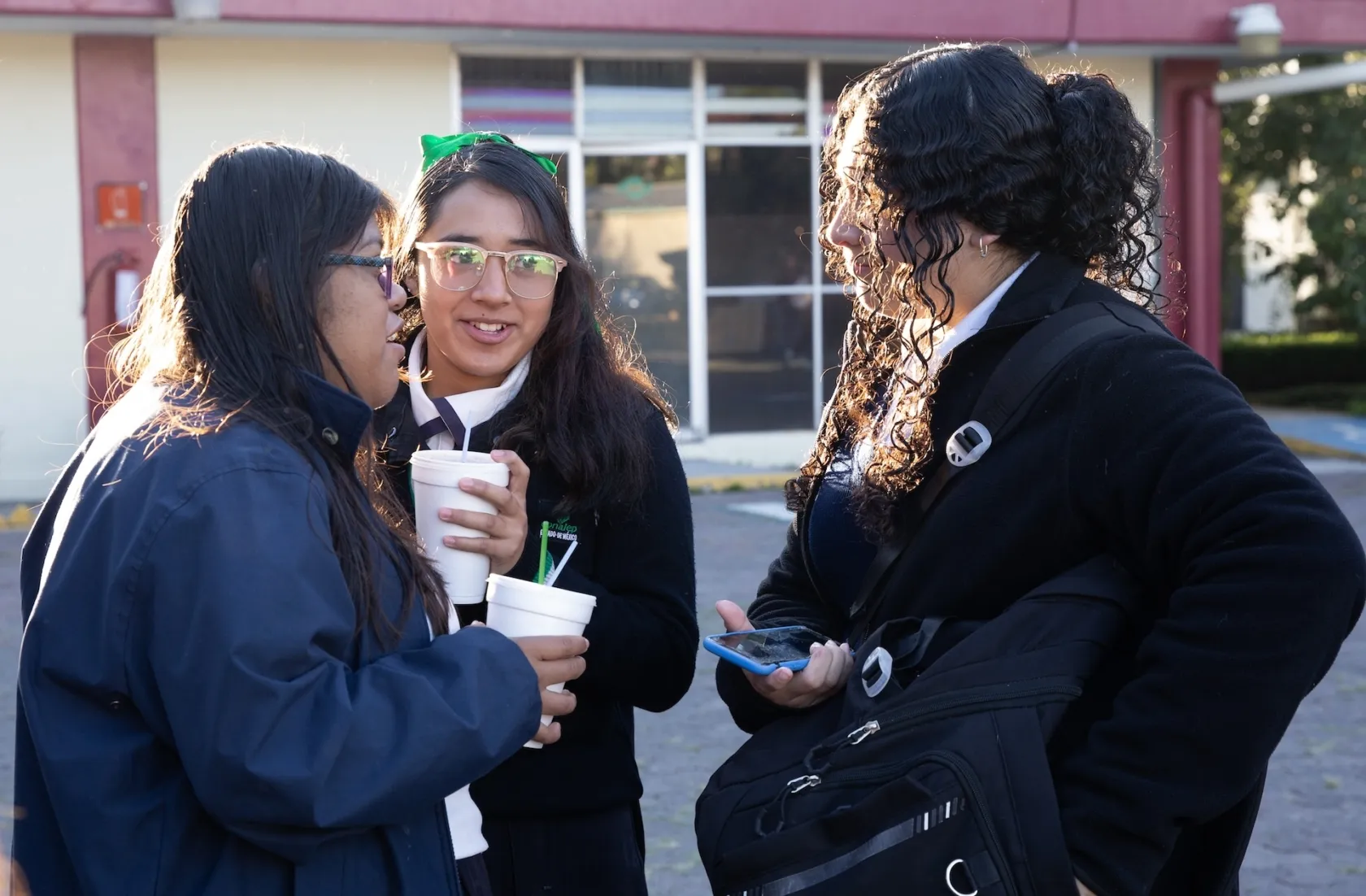
A national crisis threatening all ages
Mexico suffers from some of the highest overweight and obesity rates in the world, with 70% of the population classified as overweight and 30% as obese. As a result, the prevalence of diabetes has been steadily rising, particularly among younger generations.
One in three children in Mexico is overweight and obese, which significantly increases their risk of developing diabetes and other noncommunicable diseases in adulthood.
“Mexico faces a substantial challenge related to noncommunicable diseases,” says Corina Martínez Sánchez, Mexico country director for Project HOPE. “It is estimated that 14.6 million people suffer from diabetes nationwide, and only 9% know it early enough. Only three out of 10 people living with it have it well-controlled, and it is recorded as the second cause of death.”
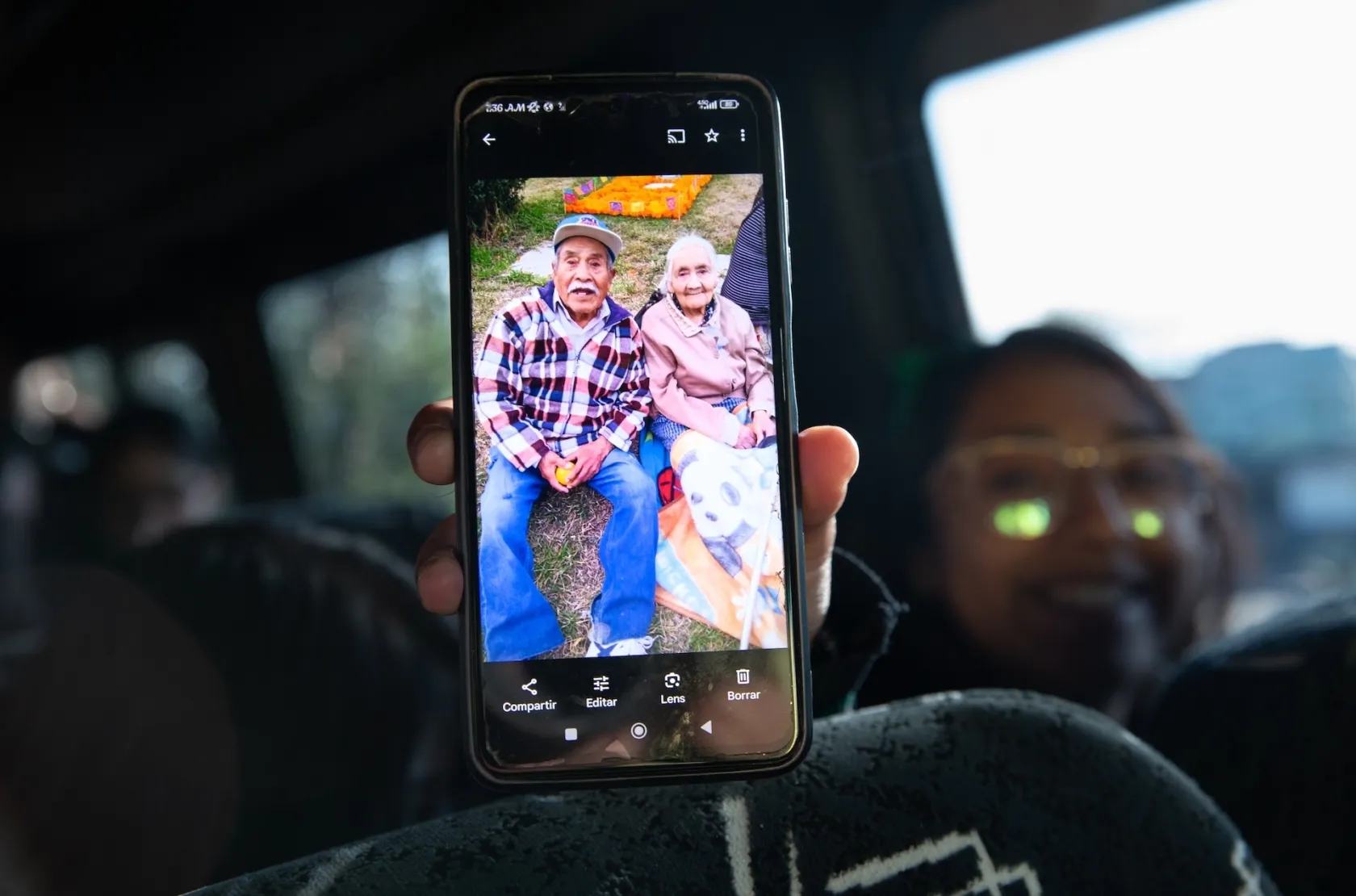
Through the AstraZeneca Young Health Program, Project HOPE is empowering school-aged children, adolescents, and young adults to develop healthier habits. The program focuses on promoting healthy eating, exercise, and reducing risk behaviors that can lead to NCDs, such as tobacco use, harmful alcohol consumption, poor diet, and physical inactivity. Participants then pass on their knowledge, training their peers to improve their health practices.
Irene is applying what she’s learned to her own life and is passionate about helping others reduce their risk of developing NCDs, particularly her younger siblings.
“I want to learn more about these diseases, how we can avoid them, and how to share this knowledge with others,” Irene says. “I would like to help those around me and my young siblings, so they don’t develop these diseases too quickly.”
I want to learn more about these diseases, how we can avoid them, and how to share this knowledge with others. I would like to help those around me and my young siblings, so they don’t develop these diseases too quickly.
To date, the AstraZeneca Young Health Program has empowered 1,050 young people with education on health promotion at 16 high schools and two universities in Mexico City, Mexico State, and Jalisco.
In Mexico City, Project HOPE and AstraZeneca recently hosted an event called “Girls Belong Here,” a forum for local community leaders to speak with young women about their agency and power, career opportunities, and health. Irene was invited to be the featured student speaker and took the opportunity to share her personal experience with NCDs and the lessons she’s learned along the way.
“As women, as girls, we always stay quiet and remain silent,” she says. “I’d like for us to be able to raise our voices.”
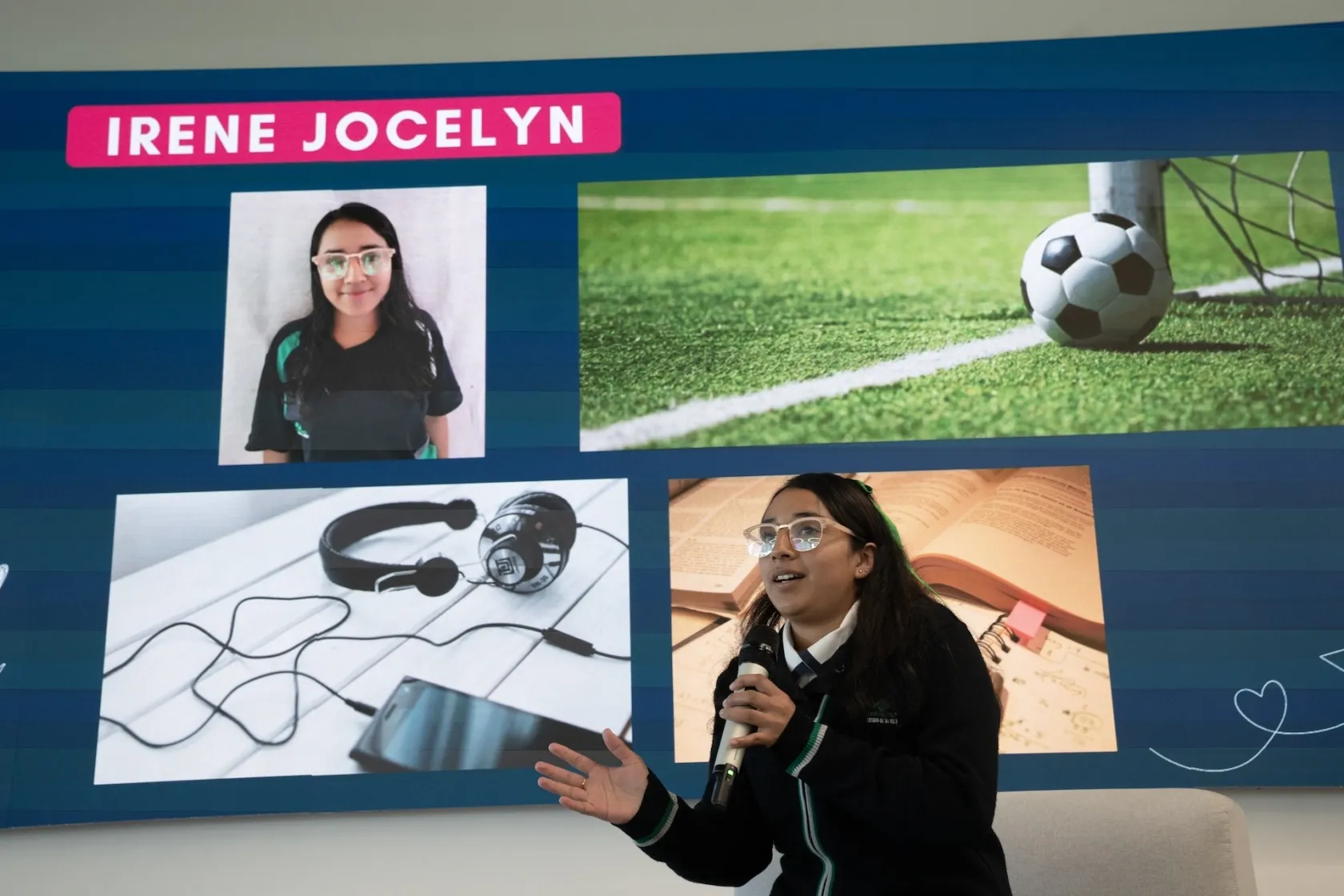
In parallel, a growing global crisis
Diabetes is one of the largest global health crises: 537 million adults were impacted in 2021, and this figure is predicted to grow to 783 million by 2045. The illness can lead to heart disease and debilitating complications, and is among the leading causes of death worldwide. Diabetes caused an estimated 6.7 million deaths in people under age 70 in 2021 — one death every five seconds.
Despite the size of the crisis, only 2% of global health funding is dedicated to chronic diseases like diabetes.
While mortality rates associated with cancer, respiratory diseases, and heart diseases are decreasing with medical advances, diabetes mortality rates continue to rise. This is because many people with diabetes aren’t taught how to manage their condition.
Despite effective medicines and management tools, many people living with diabetes struggle to manage their condition. Even if a person seeks medical care, they are often not taught that it is in their power to take control of their health.
To address the gap, Project HOPE has developed an innovative diabetes self-management education course called 5 Steps to Self-Care. The patient-focused, game-based training equips patients with the knowledge, skills, and social support they need to manage their condition and counsel others, and has been implemented around the world over the past 20 years.
The course has been designed to be replicated by primary health care professionals who come into frequent contact with people living with diabetes and hypertension, their families, and others at risk.
“The games make the learning enjoyable for the participants and the simplified way of sharing critical information about diabetes self-care not only keeps participants coming back meeting after meeting, but also helps them remember what they have learned for the long-term,” says Barbara Smith, senior program officer for Project HOPE.
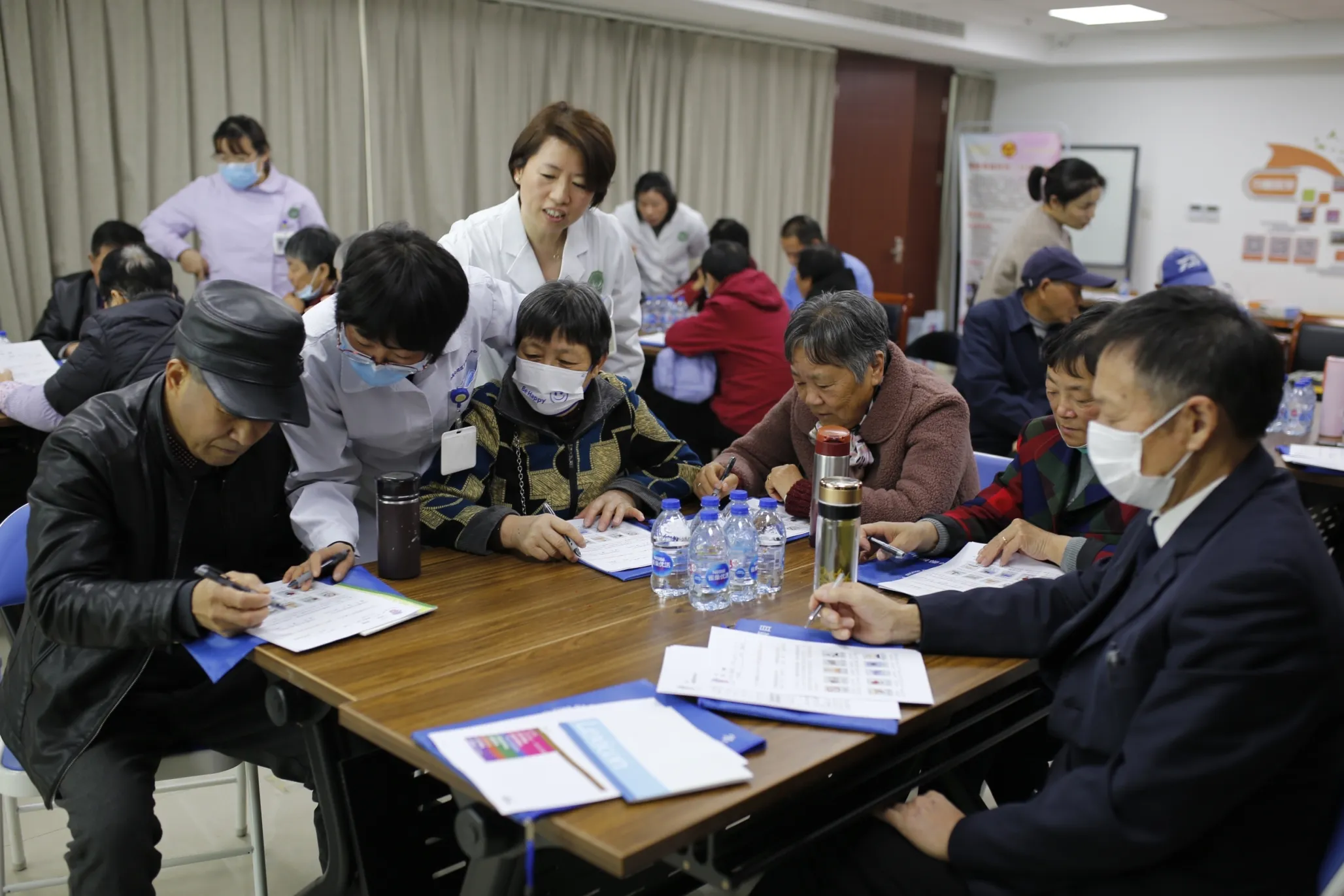
In China, we are currently implementing the curriculum to increase self-management knowledge and skills among rural low-literacy populations. To date, over 30 health workers have been trained on quality diabetes self-management education and over 200 senior adults living with diabetes and hypertension have participated in the nine-week course. All of these adults have experienced improved knowledge about diabetes self-care and improved clinical and mental health.
“They were enthusiastic about what they learned — they loved coming and learning, and their family and friends with whom they shared their homework asked to join the classes,” Smith says. “Their knowledge about diabetes self-care improved, their mental well-being improved, their blood glucose was reduced, their blood pressure was reduced, their body mass index was reduced, and there’s evidence of increasing improvement three months after the end of the group sessions.”
Shaping a healthier future
In Mexico City, Irene and her classmates are at the forefront of driving change, learning how to invest in their long-term health while influencing both younger and older generations to do the same.
Being a caretaker and witnessing the impacts of NCDs firsthand has had a profound impact on Irene, inspiring her to pursue a career as a health worker and protect the health and lives of others. Once she finishes high school, she plans to study nursing. Taking care of her grandparents wasn’t just about managing their conditions — it was about learning values of compassion, dedication, and the importance of tending to one’s health.
“I want to put my effort into saving lives so that I can be proud of myself, and to make my grandmother proud, too,” she says.

